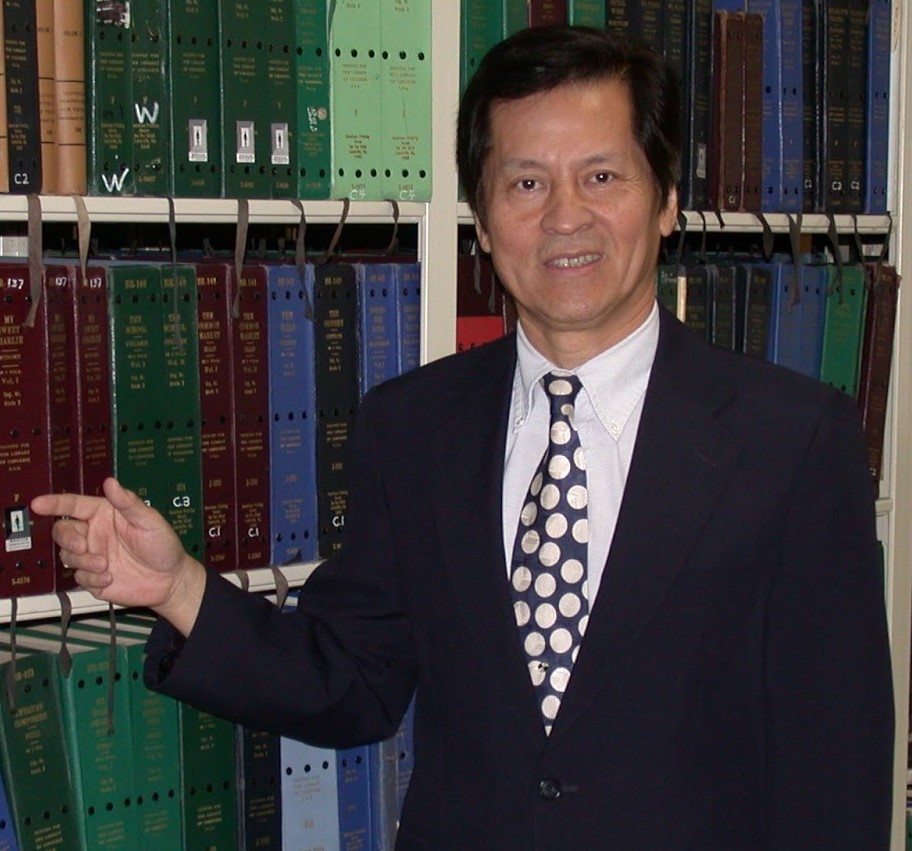by Melissa Cardenas-Dow and Molly Higgins
In preparation for our APALA 35th Anniversary & Symposium celebration, the web content subcommittee has been looking back and reaching out to APALA founding members. Previously, we featured Drs. Kharkanis, Har Nicolescu, and Collantes. We also featured Dr. Ken Yamashita, who wrote a very informative article on the history of APALA.
This article featuring an APA library leader focuses on APALA founding member, Dr. Henry C. Chang, Director of Library Services at the Braille Institute in Los Angeles, California. Below is an edited version of an email conversation we had over the summer and early fall of 2014. We discussed APALA, librarianship and Dr. Chang’s career trajectory.
Melissa Cardenas-Dow (MICD): What drew you into librarianship?
Henry C. Chang (HCC): I was pursuing my Master’s degree in demography at the University of Missouri, Columbia. I became interested in librarianship while working part time at the library on campus. After I obtained my first Master’s degree in 1966, I continued my studies at the University of Minnesota, where I attained a second Master’s degree in Library Science in 1968. Later, I was recruited to the university library faculty as Public Services Librarian. After one year in that position, I was promoted and joined the library administration as Assistant Head. I worked on my doctoral degree, which I attained in 1974, majoring in sociology with a minor in library science. The next year, in 1975, I was offered the position as Chief Librarian and Lecturer in social sciences at the University of the Virgin Islands. In January 1990, I relocated to Los Angeles and became Director of Braille Institute Library Services, the position I still hold.
MICD: Why did you get involved with the founding of APALA? How were you involved with the organization as it grew?
HCC: I was very active in the American Library Association (ALA) after I obtained my professional degree in Library Services in the 1960s. At that time, the Association of Jewish Libraries already existed, the California Librarians Black Caucus was established in 1970, and REFORMA, the national association to promote library services to Latinos, was organized in 1971. Many Asian American library colleagues felt that there was a great need to have an organization of our own. As one of the leaders at that time, I took the initiative and the responsibility to organize the Asian American Librarians Caucus (AALC) in 1975 at the ALA Conference in San Francisco, where a large Asian community existed. I was elected Chairperson and we held the first meeting to seek funding for scholarships in library/information science for Asian Americans. About 500 people attended. The caucus held its future meetings during ALA Midwinter and the ALA Annual Conference and I continued to be involved through the 1980s. I received a certificate of appreciation from ALA as Councilor in recognition of my distinguished services in 1984.
MICD: What was the significance of APALA when it was founded? How has it changed over the past 35 years?
HCC: The purpose of the APALA predecessor organization, AALC, when it was founded was to provide a forum for discussion of problems and concerns of Asian Pacific American librarians and to support their aspirations. There was also a need to promote and improve library services to Asian American communities. One objective was to increase communication between Asian American librarians and other librarians and to gain recognition for Asian Pacific American librarians’ contributions to the profession. Membership in the AALC was opened to librarians of Asian ancestry including Asian Indian, Filipino, Japanese, Korean, and Chinese employed in U.S. libraries. The caucus expanded and eventually became APALA in 1980. The APALA founders shared concerns about the invisibility of Asian American librarians. APALA affiliated with ALA in 1982 and became the primary professional association for Asian Pacific American librarians.
MICD: How do you define your Asian American identity and how does it influence your work as a librarian?
HCC: In the early 1970s, I responded to a need to establish a professional organization for all Asian American librarians. As a founder of the organization, I was the spokesperson for the Caucus to promote our programs and services. In those days, there was a large proportion of Asian Americans working in the library field, mostly in technical services. Many were not active and had no interest in participating in ALA or other professional activities. Some Asian American librarians had to overcome language and communication difficulties with mainstream communities. Relatively few Asian American librarians held management positions and we had, to work extra hard to prove ourselves. We, Asian American librarians, had to constantly challenge ourselves to work smarter and harder to be able to move up in our careers.
MICD: Do you have any advice for young Asian American librarians?
HCC: I tell them be proud to be an Asian American librarian and part of the society at large in a country of opportunity where they can fulfill the American Dream. As Asian American librarians we are the best qualified to reach out to our respective minority groups and extend library service and change lives. We can build special collections of interest to some Asians and also lead other groups to full participation in American society. I encourage them to get into management and make a significant contribution to the library community.
Molly Higgins wrote and clarified the questions for this interview. Alyssa Jocson provided editing assistance. Many thanks!
APALA members: do you have suggestions for APA library leaders whom we can feature on our website? If so, please send an email to melissa.cardenasdow(at)gmail.com with the subject: “APA Library Leaders.” I appreciate your suggestions! ~Melissa

